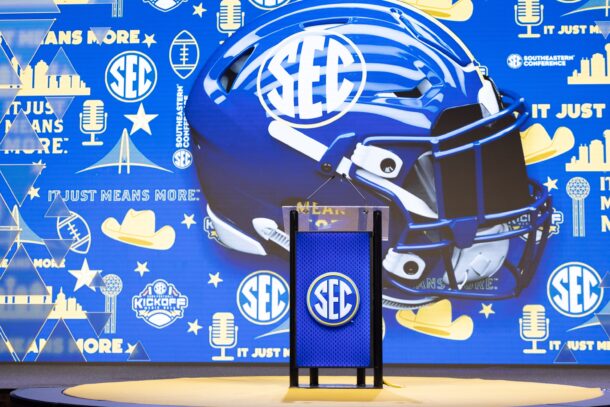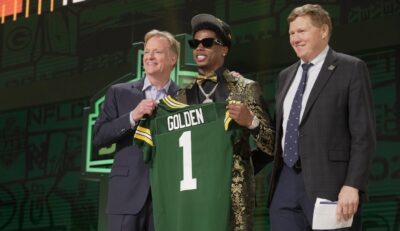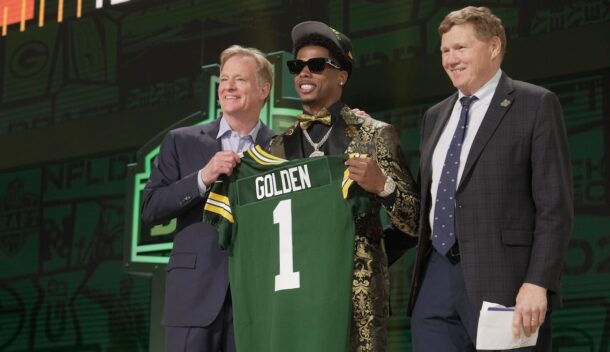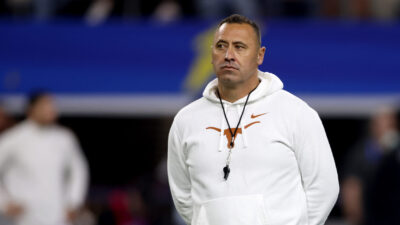Ad Disclosure
The eyes of college football were glued to ESPN’s family of networks on National Signing Day, as a glut of top uncommitted prospects announced where they’d be attending college live on national television.
One of the biggest names among them was CeCe Jefferson, a five-star defensive end from Florida ranked somewhere in the top 20 or so prospects by all of the major recruiting services. With good size and excellent athleticism, Jefferson is viewed as a player who can make an immediate impact on the college football scene.
That’s why Alabama, Auburn, LSU, Ole Miss and others were chasing him, and that’s why it was a big deal when he donned a blue-and-orange Florida Gators hat to announce his decision.
And that’s why the wait for his Letter of Intent to arrive was a tense one for Florida. We quickly learned that the holdup was due to a coaching change. Gators defensive line coach Terrell Williams, Florida’s primary recruiter on Jefferson, left for the NFL’s Miami Dolphins right as Jefferson was announcing his decision.
Despite Jefferson’s proximity to Gainesville — he hails from a town just an hour from Gainesville — and close to a dozen visits to Florida’s campus over his senior summer and fall, the coaching change was enough to set off alarms with Jefferson and his family.
Jefferson eventually sent in his LOI on Monday, five days after announcing his decision, but the lesson was clear. For all the time Jefferson spent around Florida’s campus, it was Williams who recruited him, not the school at large. Jefferson committed to the coach who recruited him and naturally got cold feet when the rug was pulled from under him.
Jefferson’s wasn’t the only situation like this. There’s Roquan Smith, the four-star linebacker from Georgia who committed to UCLA on NSD. Smith quickly caught wind of Bruins defensive coordinator Jeff Ulbrich leaving for the NFL and he, too, pulled back on his commitment. Like Jefferson, Smith hadn’t signed his LOI, leaving him free to explore his options. Unlike Jefferson, Smith seems so miffed by how the coaching departure went down that he no longer wants to attend or play for UCLA.
UCLA and Florida aren’t the only two schools to have assistant coaches — and primary recruiters — jump ship shortly after NSD. Arkansas, LSU, Ohio State, Texas and several other high-profile programs had coaches leave shortly after signing day. That left several signees feeling unsettled and upset, but that’s the nature of the coaching business.
Is it fair to the players? Smith’s high school coach doesn’t seem to think so. Larry Harold blasted the coaches that leave right after signing a recruit in an interview with the Atlanta Journal-Constitution. His central message was that coaches spend hours recruiting players, and once those players get to campus those coaches become their de facto parents. There’s a trust factor that’s broken when coaches bail, since more often than not those coaches are the ones to secure a commitment.
Not every player falls into that camp, though. Look at Tennessee’s 2015 recruiting class, which is a prime example of high schoolers committing wholeheartedly to a university. Early enrollees competed with each other to see who the best recruiter among them would be, while another commit may or may not have been asked to leave a visit to another campus for wearing Tennessee gear.
UT coach Butch Jones and his staff clearly played a role in building that kind of loyalty to the school, but you didn’t see any Vols commits wavering when former offensive coordinator Mike Bajakian left for an NFL opportunity shortly before NSD.
In truth, neither side is wrong. As Jefferson’s father Leo pointed out while his son was “holding out,” this was CeCe’s future being decided, and the Jeffersons were right to want to know who exactly would be coaching at Florida.
While college football coaching is not the most stable of professions, recruits are right to hope for transparency if they’re making their decision based on coaches.
A former freelance journalist from Philadelphia, Brett has made the trek down to SEC country to cover the greatest conference in college football.




